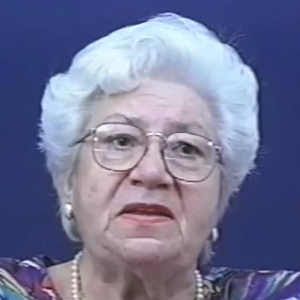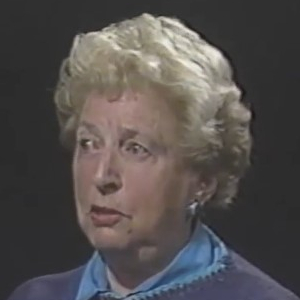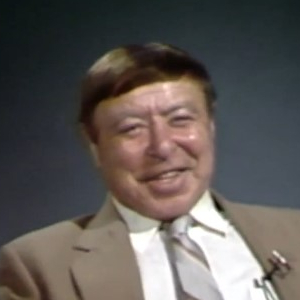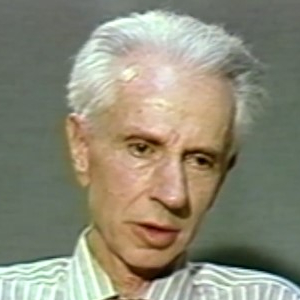Renata Zajdman
Renata explains how she avoided being outed as Jewish. She describes how she was sent to Germany to work as a Pole, not a Jew.
Renata Zajdman (nee Scotnicka) was born October 23, 1926 in Warsaw, Poland to Lucian and Natalia Scotnicka. She was the only child of her separated parents and had two older half siblings: Alexander and Anna. Because her parents were separated, Renata lived between two houses. Her father was a lawyer and her grandfather was a well-respected doctor and town councilor, so she had a privileged childhood. Renata attended school in Warsaw where she learned to speak Polish and Russian. She did not come from a very religious background, but was exposed to Judaism when she visited her religious mother. Renata did not feel much antisemitism until her father’s funeral in 1939 when his grave was stoned.
In order to escape antisemitic laws and roundups, Renata, Anna, and Alexander got smuggled out of Poland. Renata and Anna left a few days after Alexander. They met him in Białystok, Poland, but Anna wanted to return to Warsaw to get their mother. She was arrested on her way there and taken to the Warsaw ghetto. Alexander decided to return to Warsaw so he could stay with his sister, and Renata hid as a schoolgirl in a Russian boarding school under a false name and age. When Białystok bombed, Renata fled the town. She concealed her Jewish identity and found work peeling potatoes for Germans.
Renata decided she wanted to be reunited with her family and needed to find a way into the Warsaw ghetto. On her way back to Warsaw she was reunited with her family’s old housekeeper Yanka, who was looking for her on behalf of Anna and Alexander. When they returned to Warsaw, Renata tried to jump on a streetcar that was heading into the ghetto, but got arrested and beaten for three days. She was then taken to the Jewish prison in the ghetto but was released when her cousin recognized her and told the guard she was his friend’s sister.
In the ghetto Renata studied in illegal groups and smuggled books around, acting as a librarian. During deportations in 1942, Renata hid in empty apartments. Renata was able to acquire false papers and leave the ghetto under the name Irena Kristina. Renata changed her appearance, and she and Yanka hid in barns in the countryside. Eventually Renata got a job on a farm, and Yanka returned to Warsaw. The family that owned the farm made Renata go to church with them to prevent anyone from finding out about her Jewish identity. Unfortunately, a forester found out she was Jewish and arrested her. Renata was able to escape arrest by jumping off the cart while other people that were being arrested attacked the forester.
Renata then decided to return to Warsaw to reunite with her brother who was still in the ghetto. Once sneaking back into the ghetto and finding Alexander, they escaped in December of 1942. After finding somewhere to stay, Renata was sent to Germany as Polish labor. She worked cleaning houses and in a slaughterhouse for two months. She was then taken to Mannheim where she worked unloading sacks of powder from trains and mixing it with liquid soap and ammonia. Renata was able to get Anna a job as well, and they worked together, although they pretended to not know each other. Renata and Anna worked in this factory until the end of the war.
After being liberated by American forces, Renata and Anna were given an apartment in Mannheim, where they stayed until October 1945. They then headed to Poland to find Alexander. While in Poland Renata volunteered in a transit camp in Dziedzice categorizing people. She then headed to Alexander’s old apartment in Warsaw where she got his new address in Danzig. After staying in Poland for 6 months Renata decided she wanted to leave Europe and search for more relatives. She illegally crossed borders with a group to Israel but was arrested in Prague and sent back to Poland. She then went to Munich to be with Anna, followed by a Displaced Persons camp in Bensheim, Germany. While in the camp, Renata attended classes and became a nurse.
In December 1948, Renata migrated to Montreal, Canada. She migrated as a nurse, but worked as a maid and in a factory. She met her husband Abram, a Russian Holocaust survivor, in 1953, and they got married May 3 of that year. They had one son and one daughter. Renata was active in the community and was an activist for Holocaust Education. She also helped Anna come to Canada, and helped her brother defect to Australia in 1959.
Renata Zajdman died in 2013, and her full testimony is part of the Canadian Collection of Holocaust survivor testimonies. It is preserved in the USC Shoah Foundation’s Visual History Archive and accessible through the Ekstein Library.
Renata ZajdmanI turned the tables on her… I started to yell: ‘she is a bloody Jew, that one!’
Testimony to discover
-
Camp

Roza Wolinsky
Roza recalls the deaths of girls she worked with in the camps. A significant moment she remembers is one dying in her arms and asking Roza to tell eve...
Listen -
Deportation

Sala Bonder
Sala describes getting on a train headed for Treblinka. The main focus of the moment is her decision to jump from the train to get away from the death...
Listen -
Military

Sam Pacht
Sam describes a time he faced antisemitism while recovering in a hospital in Samarkand. He recalls what another man said about Jewish people and what ...
Listen -
Deportation

Stefan Carter
Stefan describes being rounded up by German officers. He remembers walking to the square they were told to go to in a large group and the procedures u...
Listen
Educators & Students
Educational guides
Check resources